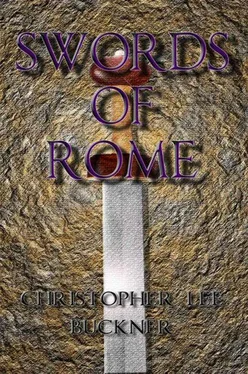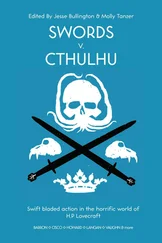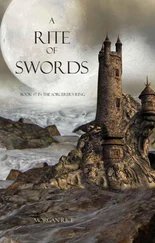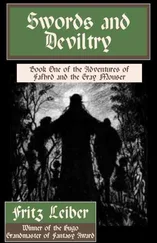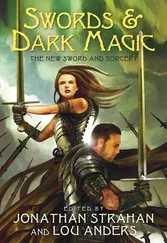Christopher Buckner - Swords of Rome
Здесь есть возможность читать онлайн «Christopher Buckner - Swords of Rome» весь текст электронной книги совершенно бесплатно (целиком полную версию без сокращений). В некоторых случаях можно слушать аудио, скачать через торрент в формате fb2 и присутствует краткое содержание. Жанр: Исторические приключения, на английском языке. Описание произведения, (предисловие) а так же отзывы посетителей доступны на портале библиотеки ЛибКат.
- Название:Swords of Rome
- Автор:
- Жанр:
- Год:неизвестен
- ISBN:нет данных
- Рейтинг книги:3 / 5. Голосов: 1
-
Избранное:Добавить в избранное
- Отзывы:
-
Ваша оценка:
- 60
- 1
- 2
- 3
- 4
- 5
Swords of Rome: краткое содержание, описание и аннотация
Предлагаем к чтению аннотацию, описание, краткое содержание или предисловие (зависит от того, что написал сам автор книги «Swords of Rome»). Если вы не нашли необходимую информацию о книге — напишите в комментариях, мы постараемся отыскать её.
Swords of Rome — читать онлайн бесплатно полную книгу (весь текст) целиком
Ниже представлен текст книги, разбитый по страницам. Система сохранения места последней прочитанной страницы, позволяет с удобством читать онлайн бесплатно книгу «Swords of Rome», без необходимости каждый раз заново искать на чём Вы остановились. Поставьте закладку, и сможете в любой момент перейти на страницу, на которой закончили чтение.
Интервал:
Закладка:
Gaius turned abruptly as he heard one of his men go down. No arrows had struck his shield, but as he looked down, he saw that one of them had torn through Agrippa’s throat.
The man whizzed violently as his hands reached up to his neck, trying desperately to stop his own blood from gushing out through the hole in his throat.
Blood bubbled from Agrippa’s neck. No one could help him even though a number of men called his name, or cried for the doctor to rush to his aide, but with the impossible gap between the men and the river, no one could get to Agrippa in time, as if it would have help, before he choked on his own blood.
Gaius was in near panic as he looked back towards the trees. Only now did it seem the weather was lifting, as if the attackers had the power to control nature.
He gazed upon thousands of murderous savages, many of them bare-chested, painted with bold blue patterns on their bodies — others covered in head-to-toe in the furs of wild animals. They bashed their assortment of weapons against their small wooden shields, as they bellowed loudly in their barbaric tongue.
Gaius was panicked by the sight of the demon-men, all of whom seemed larger than the greatest gladiator in the arena. He wanted desperately to run, even risk freezing in the river, as long as he escaped. And as he glanced around him, seeing the same fear in his men’s eyes, Gaius knew he had to take charge. He was a centurion and the Wolves never turned their backside to the enemy.
“Hold your formation and wait for these bastards to come to us!” Gaius yelled as loud as he could, surprised even by his own voice and the renewed confidence in it.
“We are Wolves, and these men are only sheep. Show them what Roman iron can do!” he added, which brought a joyful boom from his men as they cried out his sentiment, challenging the Gauls to test them.
Further commands from other centurions and less important officers carried across the whole Roman formation, as the Sixth and its escorted auxiliaries knew what their duty was. They had all trained for war, young and old alike, and while individually a Roman was marginal to a Gaul in a straight fight, as one, they were a machine created for one purpose, and that was to destroy anything that was before it.
Another volley of arrows shot from the trees, only this time the Romans were prepared for the attack, as hardly a whimper was heard from the lines, as an arrow struck against the harden Roman shields, deflecting harmlessly to the snow-covered ground.
And then, with one last monstrous war cry, thousands of Gauls charged down the steep embankment.
Gaius waited, his eyes just over the brim of his shield, holding firm as his grip on his shield with one hand was strong, equaled by his hold on the hilt of his sword. He could hear, feel and see the breaths of the men beside and behind him, as the soldiers of the Sixth waited for the oncoming charge, which rolled down the hill like a juggernaut, bent on one task alone — to spill Roman blood.
CHAPTER NINETEEN
“Pilums, let fly!" Gaius cried out, as seconds later the men behind him unleashed their devastating iron-tipped spears at the charging Gauls.
Screams of barbarian foreigners blossomed as the triangle-shaped tips of the javelins tore through flesh and bone, wood and armor alike as hundreds of men were struck by the heavy Roman weapons.
There was no time for a second volley to be ordered. On open ground, the Romans might have gotten three or four attempts to weaken the enemy formation, but with the narrow terrain and rushing river behind them, it did not take long before the first wave of Gallic warriors collided against the Roman shields, like water against rock.
Gaius had never felt such power before as dozens of screaming, spitting, and enraged men fell against his shield. He and the whole line slid several inches back as the hard-packed snow was quickly being chewed into mud. However, the line held as the shield wall, proven time and time again in battle, could not be broken, regardless of the determination of the opponents.
“Push them back!” Gaius bellowed, unsure if his voice could be heard by his men. As instructed the men in the rear pushed against the men in front of them. A moment later the minuscule ground the Gauls had gained, was again reclaimed.
Gaius had often wondered if his training would indeed become second nature to him. He heard stories from the veterans that a soldier acts on instinct, losing himself in the battle as a strange sense of calming peace overtook them. Others had said the opposite — battle was chaotic, frantic and loud, that a man, regardless of how many years he had to his name, was an enraged beast, hacking and slashing to stay alive, and that all the Roman discipline counted for shit.
Gaius found that the former was true, at least for him. The fear and panic that had gripped him moments ago vanished. He responded as if his actions were not his own as ten years worth of drilling — the memory of Centurion Quintus’ vine-cane against his back, pushed Gaius forward. Lost into himself, his mind hardly recognized the first man he killed.
The moment came quickly and unceremoniously. A screaming Gaul with long brown hair, matted and caked with dirt and grit, a bright painted face, rotting teeth and thick wooly beard, the barbarian could have been twenty, but looked decades older under so much hair. He squared himself against Gaius’ shield, brandishing his small axe, which he held in his right hand — a tiny wooden shield in the other. He cursed Gaius in his native language, which Gaius understood enough of the Celtic tongue from his father’s teachings years before.
The barbarian tried desperately to get his axe-head over the brim of Gaius’ shield, wailing frantically, but Gaius was taller and protected by the well-crafted iron helmet that covered his head, and the wide shield he held tightly in his grip.
The act of killing the man came quickly, within the first few seconds after the Gallic horde had crashed headlong into the Roman formation, as Gaius rose up, peeking for just an instant over the top of his shield, and struck.
The short Roman sword, a gladius was a faultless weapon in Gaius’ trained eyes. While it wasn’t too good at slashing or bashing at an opponent, it was flawless for thrusting. Its narrow, but sturdy iron blade rested comfortably in his striking arm, precisely balanced. The ivory grip, showing wealth beyond Gaius’ station once belonged to his father — the engravings of the pack of wolves, carried the lineage of the Sixth Legion.
As the Gallic warrior screamed, his deep-blue eyes blazing with rage, Gaius thrust his sword neatly over the brim of his shield, and plunged the tip into the man’s mouth. His expression changed suddenly with the realization that, despite his, many years as a proud warrior, and the victories he must have achieved, meant nothing when his end came quickly, and without proper challenge.
Gaius felt the faint resistance as his sword struck flesh. He pushed with short-lived effort, forcing the blade, now caked with blood and little pieces of flesh, out of the nap of the man’s neck.
Gaius withdrew his sword a fraction of a second later, pulling with it a spray of crimson mist and teeth. The whole action lasted less than a fraction of a second before Gaius ducked his head back down under his shield, trusting his capable helmet to keep him safe from counter attack.
The Gaul’s feet buckled out from under him. He was dead without another sound uttered. It did not take, but a second before a new opponent took up position, as a taller barbarian drove his sword down toward Gaius’ head. The shield took the brunt of the attack, denting where the hard iron blade struck, which forced Gaius’ to lose his position for a moment as his shield dropped a few inches.
Читать дальшеИнтервал:
Закладка:
Похожие книги на «Swords of Rome»
Представляем Вашему вниманию похожие книги на «Swords of Rome» списком для выбора. Мы отобрали схожую по названию и смыслу литературу в надежде предоставить читателям больше вариантов отыскать новые, интересные, ещё непрочитанные произведения.
Обсуждение, отзывы о книге «Swords of Rome» и просто собственные мнения читателей. Оставьте ваши комментарии, напишите, что Вы думаете о произведении, его смысле или главных героях. Укажите что конкретно понравилось, а что нет, и почему Вы так считаете.
